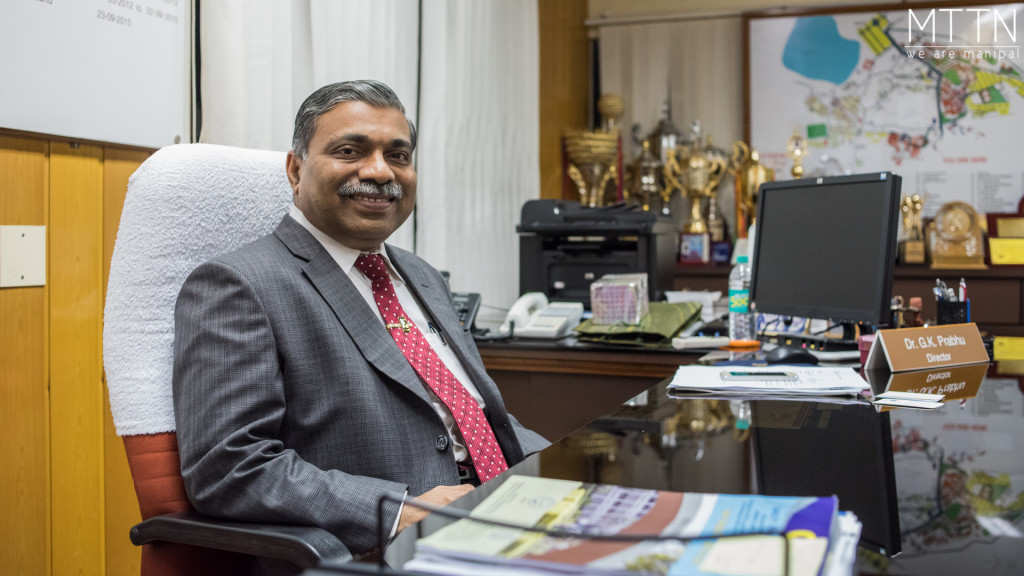
Few men can boast of excelling at their job and only the fewest among them can safely assume themselves to be at the top but, only the rarest of the rare actually stand atop the pyramid and influence the lives of those who look up to them.
Ladies and Gentlemen, MTTN presents
An insight into the life and vision of Dr. GK Prabhu, Director MIT.
Early life:
Hailing from the sleepy little town of Karkala to a taxi driver father, Dr. Prabhu’s upbringing was simple and practical. Faced with the age old dilemma of ‘education vs income’ , Dr. Prabhu decided to discontinue his education and support his family by taking up a job. But, his 10th board result changed that all. Having placed 3rd in his hometown, his teacher and mentor Prof Damodar Kini insisted that he take up science.
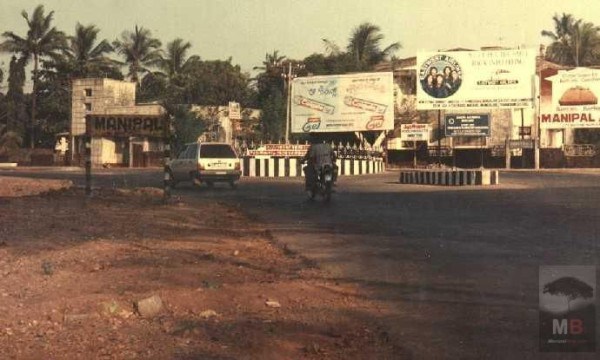
Education & Work:
Life as a student is never easy. Coupled with the fact that you’ve got to pay for your own education, engage in back breaking labour after class and still obtain grades decent enough to continue convincing the education loan providing banks that you’re still a profitable investment – and you’ve got the perfect cocktail for a tough life. Dr. prabhu obtained his BE degree from Mysore University in 1989 with a first class distinction in Electronics and communication. He then joined MIT Manipal as a faculty in the department of Biomedical Engineering.
It is in MIT,Manipal that he completed his MTech and was exposed to the vast resources and opportunities for research that the modern world offers and hence he decided to pursue his PHd. With a twinkle in his eye he said,” I was the only married man in my (Mtech) class and the constant subject of my friend’s amusement. Big daddy is what they called me.”
With strong support from his wife, who convinced him to pursue his Phd despite having to struggle with the reality of maintaining a family, Dr. Prabhu obtained his Phd in 3 years and in the process released 5 publications, obtained 1 patent and won one national award- the Shri Shyam Lal Saxena Memorial Award 2006-2007 .
After obtaining his doctorate he rejoined MIT Manipal as the HOD for Biomedical Engineering and later was appointed the associate director R&D
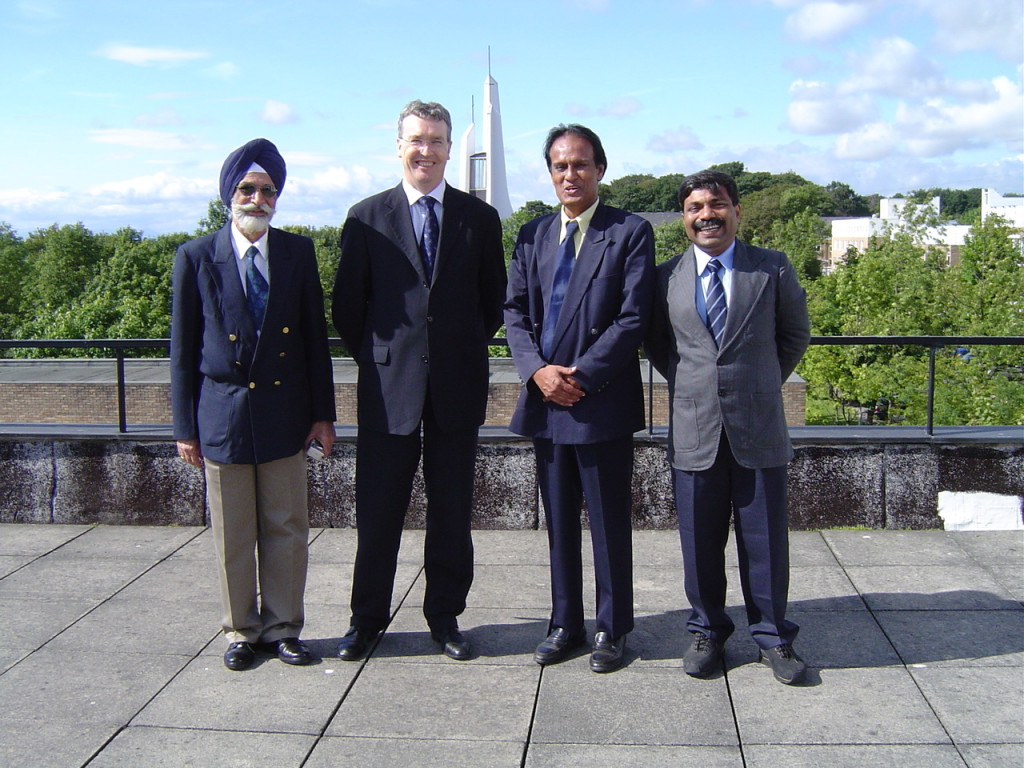
As Associate Director R&D he was responsible for many changes that immediately elevated the standards and outreach of Manipal University. He was instrumental in securing ties with many a corporate giant including phillips,intel etc. Some of these companies recruit a majority of graduates and offer attractive incentives to MIT graduates. Also, he secured funding and is chiefly responsible for creation of a few labs by using his extensive networking skills and by utilizing MIT’s widespread alumni network. These labs are critical for research purposes but are mainly focused for Mtech and Phd research scholars, owing to their complexity.
One of his major achievements during this period, which truly raised MIT’s global standing was the pioneering of student projects. On his visit to Lancaster university, he happened to visit their formula team and was mighty impressed by them. On his return, he immediately floated the idea which attracted quite a bit of attention . With a little initiative by the students, Formula Manipal was born and is now among the top FSAE teams in the country.
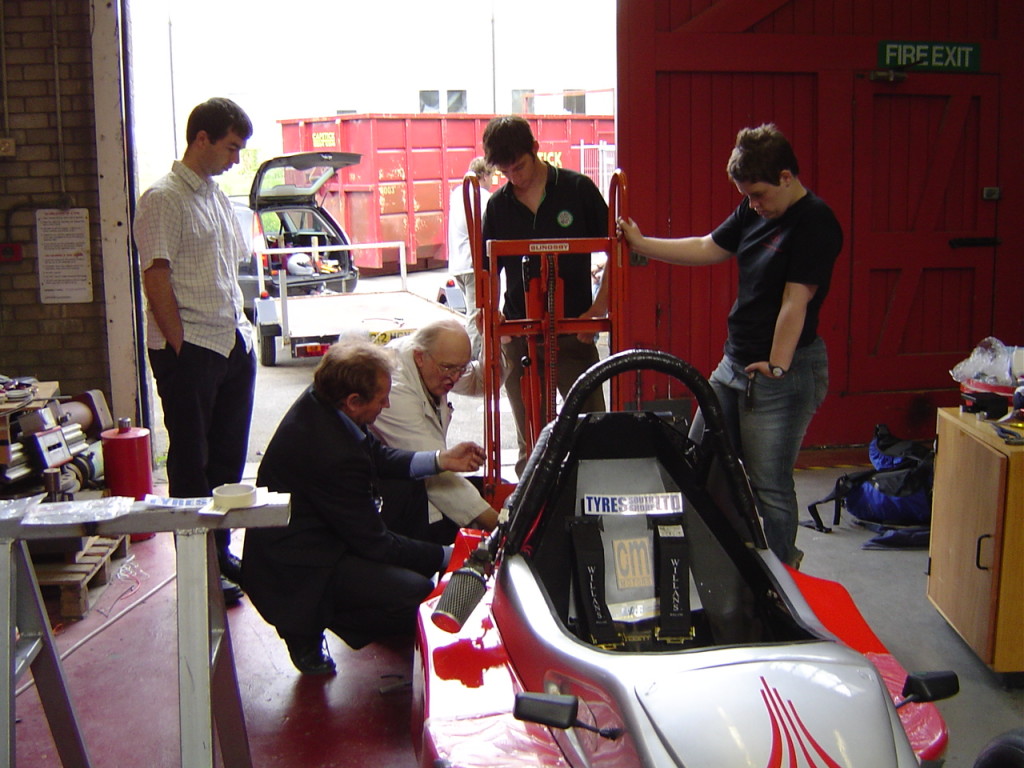
After being the Associate Director for 2 years, Dr. Prabhu rose to the rank of Deputy Registrar and then in 2008 became the first non-medical and the longest serving registrar ever of Manipal University. This in itself is a commendable feat.
With hard facts to back it up, we can safely assume that rare are the chances of finding a man better poised to lead MIT, Manipal onto the global stage and possibly among the top universities in the world.
The following is a report of the conversation our crew had with the Director-
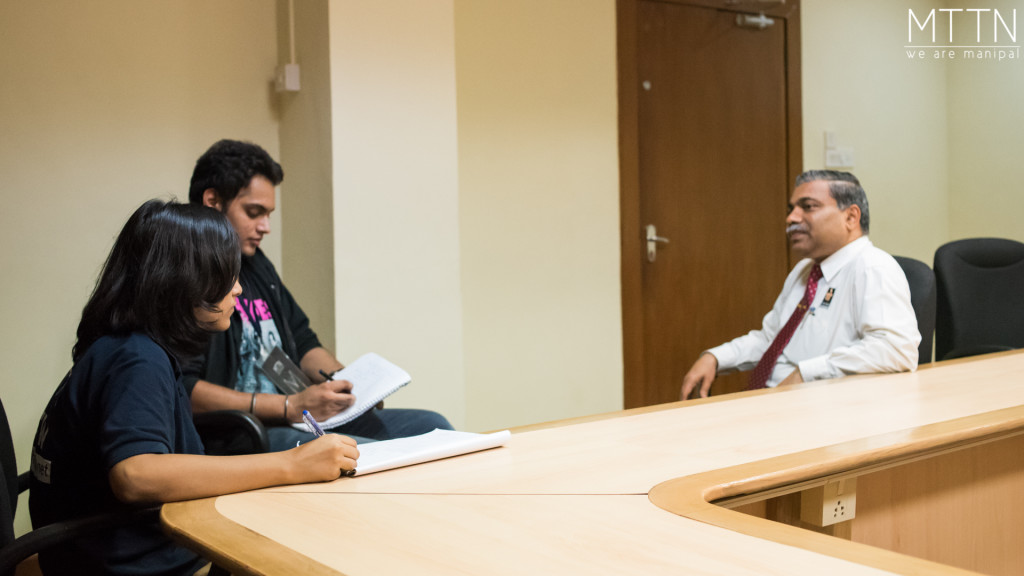
MTTN: How do you feel about being appointed the Director?
Dr. Prabhu: “Being the Registrar, is akin to being the COO of a corporation. Being the longest serving registrar has taught me quite a few things about the inner functioning of this institution. At the same time though, I realize that being the head of a college, brings with it a whole new set of challenges. It’s time for me to unlearn and relearn as and when required. I think the road ahead is pretty exciting.”
MTTN: Sir, can you please share with us, your vision for the future?
Dr. Prabhu: “Students are my most important stakeholders”.
“I want every student to share and realize my dream and help make MIT a better place. For this I will be scheduling visits to all classrooms and try interacting with as many students as possible. My vision can be categorized in five phases”
- Academics: While, the current course is undoubtedly the work of field experts and professionals, I aim to introduce more Open Electives. Such electives are not directly related to a students’ main field of study but are necessary for overall development and to provide exposure to the students. These courses can range from Journalism, to the culinary arts, philosophy and music. This is essential to turn our students into true global citizens. I also aim to start a department of performing arts where students can enroll and learn various art forms like dancing,music etc. and get university certifications.
- Research Projects: While studying at the IIT Madras, the strong research culture left a huge impact on me. This is something that our institution needs to implement. While there are few student run projects like Robo Manipal, Solarmobil, Formula Manipal,Mars Rover etc. I’d like the number to grow from mere six to at least twenty. The design of the present curriculum provides enough theoretical expertise, however, it leaves no room for practical knowledge which is an important factor in determining one’s success on the industry. I plan to make it easier for students to approach the faculty and to obtain technical and financial support. Also I plan to bring major global players to invest in research labs in the institute.
- Industrial interaction: This is the key to improving MIT’s standing in the outside world. Every department will have a minimum number of strong industry partners. New programs and courses, vetted by major techies in the companies will be introduced, creating an industry-friendly and extremely practical knowledge providing infrastructure. This will also help many a student with internships and in the placement process.
Additionally a lot of prevalent issues are being looked into. The congestion of the food court, improving the quality of hostels, the rebuilding of the road from the main gate to KC etc. are just some of the plans we’re finalizing. Plans for a new food court and a student activity centre at KC which will include an open air stage have been proposed.
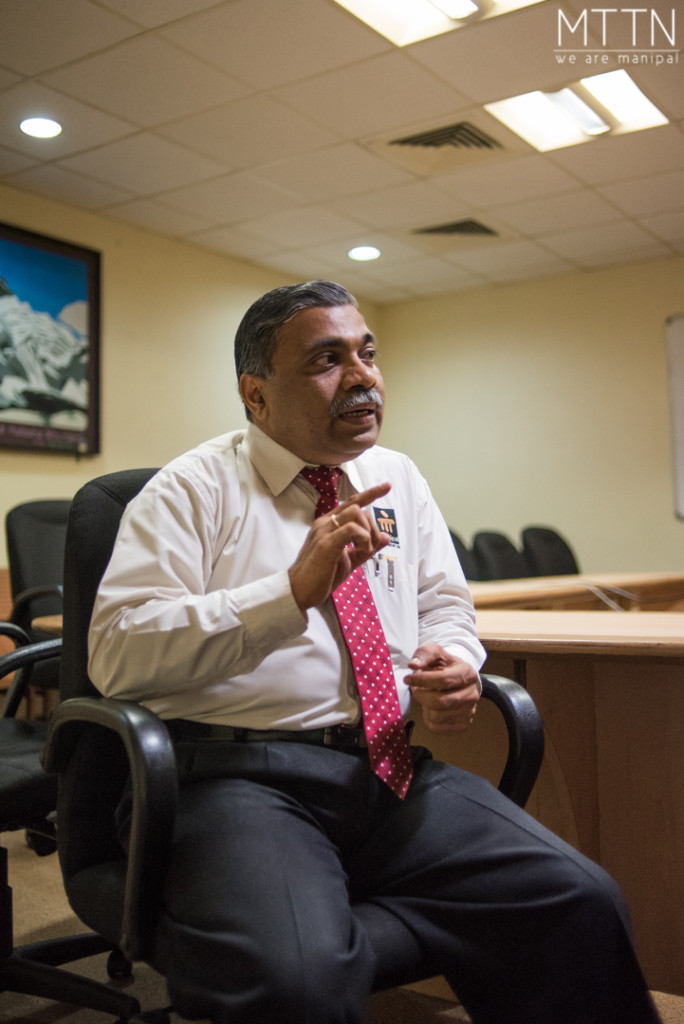
MTTN: Sir, what is your plan of action to usher MIT on the global stage?
Providing international exposure to my students is something I’ve aimed to achieve for a long time. My list of agendas include introducing a study abroad program wherein students can spend one entire semester in a partner university abroad and get their credits adjusted accordingly. Exposure to different cultures is the key to making our students adaptable and better human beings.
MTTN: What are some of the other endeavors that you would like to undertake, in your term?
The University has approved the issuing of honorary doctorates for Satya Nadella, Rajeev Suri and any other alumni who has brought MIT into the limelight. We also plan on facilitating their visit to our campus, wherein they can freely interact with the students and share their experiences.
I believe among the multitude of Engineering colleges that have mushroomed all over the nation, we stand somewhere in 40s. It is my dream, to be among the top 20s in the next three years, and among the top ten, in the next five years to come.
MTTN: What are some of the challenges that you foresee?
Every decision we make is in some way or another oriented for the betterment of the students but unfortunately, we, as the decision makers spend most of our time in board rooms, formulating plans without the direct input of the students who must be part of such crucial decisions. The gap between the faculty and the students, must be bridged. I plan to create an interactive platform for the students to communicate with the decision makers of this institute. Whether we’ll do this by social media or conventional means, remains to be seen.
The support of my students is my utmost priority. It is only with their support and input that we can positively work to help MIT achieve unprecedented heights.
MTTN: Sir, many institutes like BITS do not require a minimum attendance, while we have to maintain at least 75 percent. What is your take on that?
I, for one, do not feel that our present curriculum is dynamic or practical enough to provide the students enough incentive to sit in their classrooms. Once, necessary changes have been made and each student gets to study exactly how he/she wants I feel this criteria will no longer be needed.
MTTN: What about the perm time? Why not have just an in-campus time instead of restricting ourselves to the hostel?
It is true that the most of my students are responsible enough to be able to conduct themselves properly in and out of campus, at any given time. However, a few sporadic incidents are enough to taint the reputation of any Institution. An in-campus perm-time, would only be feasible in a less porous campus. For now this is a necessary evil.
MTTN: Sir, there are tight GPA constraints when it comes to every major post. Whether it is to be elected captain of the cricket team, or to head a media body. Why is this so?
CGPA is not the sole criteria to measure a student’s worth. Especially when it comes to nonacademic bodies like the sports teams, the media teams etc. Hence I feel that the stringent CGPA criteria can be relaxed but we must also keep in mind that this being an educational Institution, we need to maintain a minimum criteria to ensure students don’t deviate from their main purpose of coming here.
I’ve met so many students who are wonderfully talented, but aren’t able to pursue their passion for lack of GPA. Many a times the parents themselves request us to inhibit their ward’s extra-curricular activities for fear of poor academic performance. Proper counseling of the parents as well as the ward is necessary when it comes to such situations. As always a proper balance between academics and extra-curricular activities is necessary.
MTTN: 2017 ushers in the MIT’s 60th anniversary. Anything major that we can expect?
2017 will be a yearlong celebration. Kamath Circle is such a very vibrant place that I plan to significantly enhance. There are plans to construct a platform where students can perform as and when they wish and also to build a new improved student activity center.
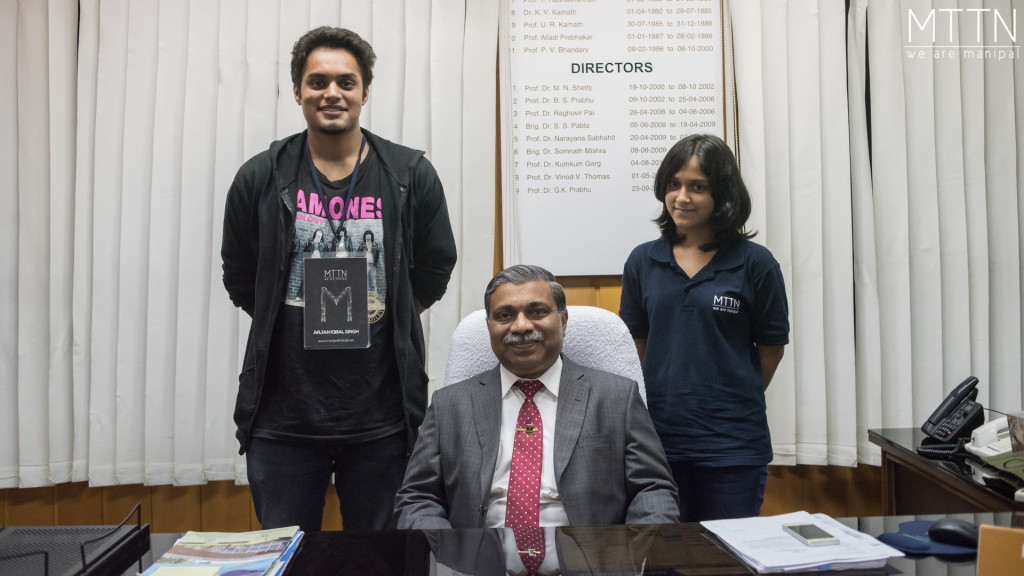
– Ananya panda & Arjan Singh for MTTN.
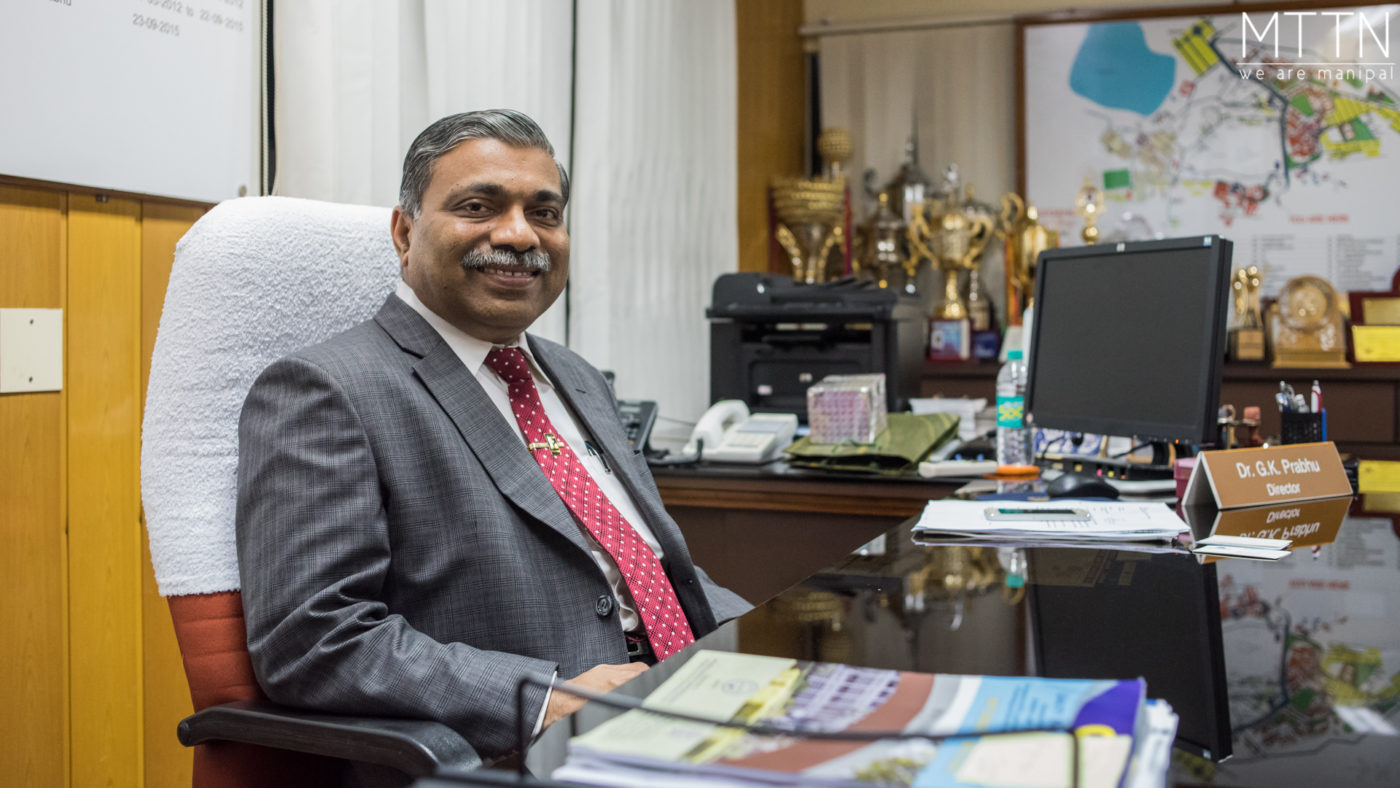
Leave a Reply
You must be logged in to post a comment.